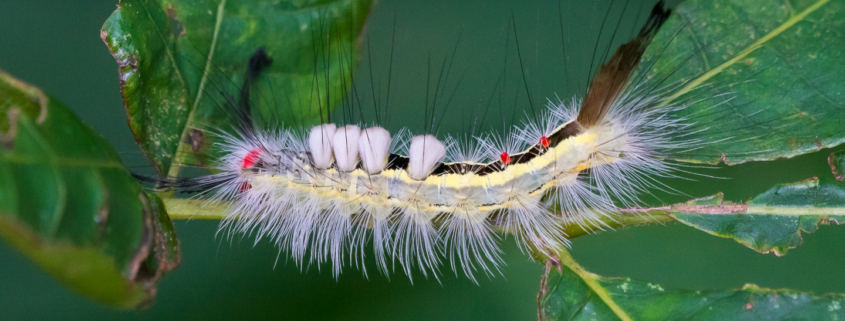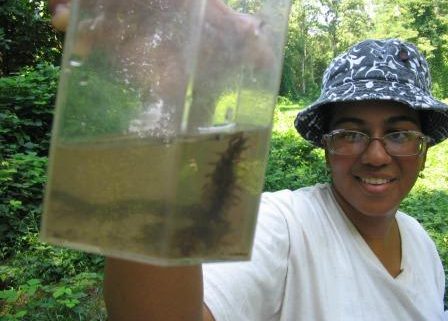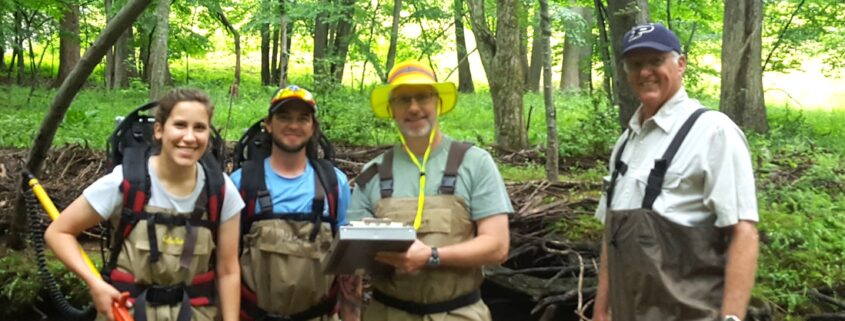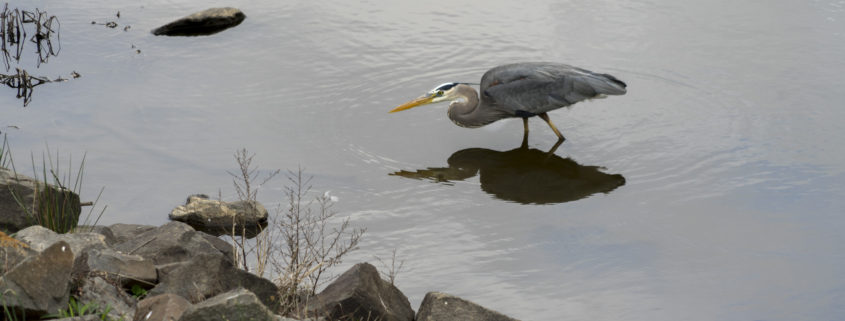Don Coram
On April 18, I received the Reston Association 2019 55+ Volunteer of the Year Award. This surprised me since, although I am a certified Virginia Master Naturalist in the Fairfax Chapter, and my volunteer work was related to insects, my career was in mathematics. So how did I end up getting an award for service related to insects? Here is the story.
The Volunteer Reston Service Awards aim to recognize all of Reston’s volunteers and to distinguish a few volunteers who have gone above and beyond to support Reston Association (RA) and the Reston community. As a volunteer, I have been working to fill voids in Reston’s nature program, specifically related to insects and other arthropods. Insects may seem to be insignificant, but there are increasing alarms in the scientific community about the decline of insect populations and the negative effects to life on earth, including humans.
One of the global issues is whether seasonal activity of plants, insects and birds are all responding synchronously to climate change. This issue is being addressed by CaterpillarsCount!, a National Science Foundation-funded study with lead universities of University of North Carolina, Georgetown University, and University of Connecticut. Reston’s Walker Nature Center (WNC) is one of the 73 sites in the Eastern United States. Georgetown University approached the WNC seeking volunteers to collect data. WNC in turn contacted the FMN members in Reston to ask for volunteers. I volunteered and became the lead citizen scientist data collector for WNC site. The project required weekly surveys of caterpillars and other arthropods, in accordance with a strict scientific protocol, throughout the season. A colleague from Georgetown and I briefed the results in an FMN-recognized program at the WNC on April 23.
Another challenge that I accepted was publicizing the bee kill in Reston. I also informed the Reston Association Board of Directors, briefed the Fairfax County Environmental Quality Advisory Committee, notified the Environmental Protection Agency, and contacted the Xerces Society, the national society for invertebrate conservation.
I have participated in Reston’s Dragonfly Counts for many years and was recently promoted to instructor for the preparatory class and leader for the counting teams. (The class and the counting are FMN continuing education and service activities, E252 and C171, respectively.) The original instructor on dragonflies in Reston moved away several years ago, so I volunteered to take over this project. Similarly, I led both teams surveying dragonflies in the 2018 Reston BioBlitz, when the leader of one of the teams was unable to participate.
I have also volunteered in Reston surveys of butterflies and birds (FMN continuing education and service projects, E250, C171, and C248). In fact, my volunteering began years ago with birds, continued to butterflies, and now includes dragonflies and caterpillars.
I used the data gathered on butterflies, dragonflies, native bees, and caterpillars to author the invertebrates section of the Reston Annual State of the Environment Report (RASER), yet another FMN service project: C245. In the first edition of RASER, I contributed to several other sections, but observed that these sections were well-covered by the RASER working group, except for invertebrates. Thus for the second edition, I focused on invertebrates as the sole author.
For each of the above projects, I volunteered time and expertise to photograph the subjects. For example, all of the photographs I used in the identification section of the Reston Dragonfly Class were taken in Reston. I believe that amateur photographs taken locally are easier for students to relate to than professional photographs in field guides covering a wide, unfamiliar area. I also submitted many of these photographs to iNaturalist and BugGuide.
The activities discussed above illustrate success in meeting the FMN goal “to provide education, outreach and service for the beneficial management of natural resources and natural areas in the Fairfax County area”. I first learned about FMN at the Spring Festival at the WNC in Reston.
So the answer to the question of how a mathematician became a volunteer entomology awardee is the Fairfax Master Naturalist program.
I welcome your participation in any of the projects I support.






